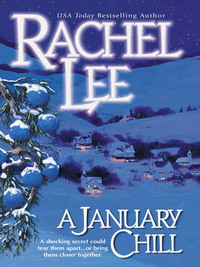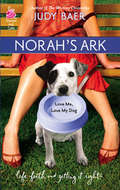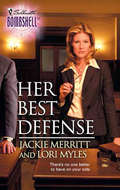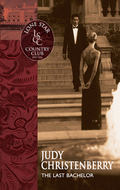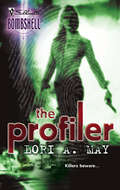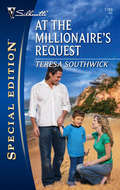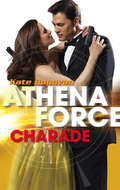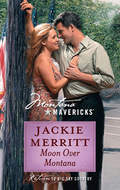Kitap dosya olarak indirilemez ancak uygulamamız üzerinden veya online olarak web sitemizden okunabilir.
Kitabı oku: «A January Chill»
“Why’d you come back to Whisper Creek?”
The sleepy question came from behind him. He turned and saw that Joni’s eyes were open. She still looked sleepy, and amazingly huggable.
He shrugged. “I don’t know. It’s home.”
She shook her head. “I’m serious, Hardy. The way Witt has treated you… Why didn’t you take a job with some architectural firm in Denver or Chicago? You could have made more money.”
“Is that what you think I should be doing? Making more money?”
“No. It’s just that I wondered why. You had a way out.” She pushed her hair back from her face. “It’s all about Karen, you know. It’s all about this feeling of unfinished business. At least for me.”
Before he could say a word, she’d disappeared into her room. He turned back to the window and stared out into the teeth of the blizzard. Yes, it was unfinished business that had brought him back. But not Karen. Not Witt.
Joni.
“Lee crafts a heartrending saga….”
—Publishers Weekly on Snow in September
A January Chill
Rachel Lee

Contents
Chapter 1
Chapter 2
Chapter 3
Chapter 4
Chapter 5
Chapter 6
Chapter 7
Chapter 8
Chapter 9
Chapter 10
Chapter 11
Chapter 12
Chapter 13
Chapter 14
Chapter 15
Chapter 16
Chapter 17
Chapter 18
Chapter 19
Chapter 20
1
The November evening was frigid and blowing dry snow so hard it stung. Joni Matlock came through the back door of the house, taking care to stomp the snow off her boots, then removed them and set them by the wall on the rag rug. Her feet instantly felt cold, because the mudroom wasn’t heated. Shivering a little, she shook out of her jacket, tugged off her knit cap and hung both on a peg next to her mother’s.
Then she darted into the kitchen and gave thanks for the heat that made her face sting. Her mother was sitting at the table in the dining room, visible through the open doorway, apparently busy with her needlework.
“Mom,” Joni said, “you put too much wood in the stove again.”
Hannah Matlock looked up with a smile. “I get cold, honey. You know that.”
“It must be eighty in here.” But Joni wasn’t complaining too seriously. It felt good after the bitter chill of the dark evening outside. On the trip home from the hospital where she worked as a pharmacist, her car heater didn’t even have time to start working. She felt like an ice cube.
“There’s fresh coffee,” Hannah said, bowing her head over her stitchery. “And I thought I’d just heat the leftover pot roast for dinner.”
“That sounds good.”
Joni poured herself a mug of coffee and whitened it with a few drops of cream. Real cream. She couldn’t stand the nondairy creamers. Then she stood in the doorway between the kitchen and dining room, sipping the hot brew and watching her mother stitch.
At fifty, Hannah’s hair was still as black as a starless night, a gift from her Ute ancestors. Her face, too, held a hint of the exotic in high cheekbones, and was still nearly as seamless as her daughter’s. Her eyes were dark brown, almost as dark as her hair, and Joni had always envied them because they seemed to hold mystery.
Joni, for her part, had bright blue eyes. Hannah always said Joni’s eyes had captured the sky. Joni felt differently about them. Blue eyes were a lot more sensitive to the light, and all winter long she had to hide them behind sunglasses.
The women were alike enough, however, to be sisters.
Joni joined her mother at the table, cradling her mug in her cold hands. “How was your day?”
“Delightful,” Hannah said. She rarely said anything else. “Well, there was one bad spot. I had to help put down Angie Beluk’s dog.” Hannah worked as a veterinary assistant four mornings a week.
“I’m sorry,” Joni said, feeling a pang. “What was wrong?”
“Cancer.” Hannah sighed and snipped her thread. Then she put her hoop to one side. “Poor Angie. She had Brownie for sixteen years.”
“That’s so sad.”
“Well, it happens, unfortunately. On the brighter side, we delivered a litter of pups. What about you? How was your day?”
Joni sipped her coffee, feeling the heat all the way down to her stomach. “Oh, the usual. I rolled pills, mixed elixirs, chatted with a dozen people….”
Hannah laughed. “You make it sound so boring!”
Joni smiled back at her. “It’s not. But it sure isn’t the height of adventure.”
Something in Hannah’s face softened. “Is that what you really want, Joni? Adventure?”
After a moment, Joni shook her head. “Not really. Remember the curse, ‘May you live in interesting times’? I’ll settle for ho-hum, thank you very much. Want me to put the pot roast on to heat before I go change?”
“No, honey, I’ll do it. You just go on up.”
“Okay.” Taking her mug with her, Joni rose and disappeared into the living room, in the direction of the stairs.
Hannah stared after her, a faint crease between her eyebrows. Maybe, she thought for the hundredth time, she had made a mistake in moving them fifteen years ago to Whisper Creek after Lewis died.
She had told herself at the time that it was for Joni that she had brought them here, but now, in retrospect, she wondered if she hadn’t really done it because she was afraid herself. After all, staying in Denver had meant finding reminders of Lewis around every corner and in every familiar face. She had tried to go back to work but had found being in the hospital again was just impossible for her. Every sound, every smell, reminded her of Lewis and the fifteen years they had shared.
So maybe she hadn’t really done it for Joni. Maybe she had been lying to herself when she justified the move by assuring herself she was taking the child away from all the bad influences to a quiet community where kids didn’t hang around in gangs and kill innocent doctors who were crossing a parking lot on the way to save lives.
Maybe she had been lying to herself when she argued that Joni would be better off near the only family either of them had, Lewis’s brother, Witt.
Maybe those had all been excuses because she was unwilling to face her own fears and her own pain—and her shame.
But she hadn’t really wondered about it until lately. Not until three years ago, when Joni had finished her schooling and moved back into her old bedroom while taking a job at the little mountain hospital just outside town. For the first time it had seriously occurred to Hannah that she might have crippled Joni in some way.
Because what could a twenty-six-year-old woman possibly want in this town? There was no adventure, few single men of her age, nowhere to go on Friday night other than a movie theater and a couple of bars. Why hadn’t Joni taken a job somewhere else? Her pharmacy degree and her grades surely would have given her her pick.
But Joni had chosen to come here and live with her mother. Not that Hannah minded. It just made her feel terribly guilty.
As did her secret, the one she had never whispered to a soul. Over the years she had almost convinced herself it wasn’t true, but lately…lately every time she wondered if she had gone wrong somehow with Joni, the thought came back to haunt her.
Maybe she had made it worse by keeping it so long. Maybe she had deprived Joni of something essential. Every time the thoughts rose in her mind, she shied away from them, telling herself that the truth would have made no essential difference, that all she had done was protect herself and her child from shame.
But she hadn’t really protected herself, because the shame still burned in her, making her squirm inwardly. Reminding her that her motives had never been as pure as she had told herself. Keeping her from the one thing she wanted more than anything apart from Joni’s happiness.
But it was too late now, she told herself. She had made her mistakes, and there was no way to mend them. She had to believe that, at the very least, she had taken good care of her daughter.
Sighing, she rose from the table and went to put the leftovers in the microwave to warm. And she tried not to think of the terrible secret she guarded.
Upstairs, Joni’s room was like an oven. The heat from the woodstove downstairs funneled up the stairwell and filled the bedrooms. It was one of the reasons she was always trying to persuade her mother not to put so much wood in the fire.
Smothering a sigh, she battled to open the argumentative bedroom window and let some of the overpowering heat escape into the frigid night. The icy chill that only a few minutes ago had been making her so uncomfortable now actually felt welcome as it sucked some of the heat out.
Her room was blessed with a walk-in closet large enough to be a dressing room—which was a good thing, since the room itself barely had enough room for the four-poster double bed and a rocking chair. The closet was chilly, since it had been closed all day, and she shivered a little as she changed swiftly into what she called her “compromise clothes,” a pair of chinos and a long-sleeved cotton shirt. She wouldn’t suffocate at the temperature her mother preferred, yet they would prevent her from shivering in the drafts that always stirred in this old house.
Downstairs, she found Hannah humming quietly as she set the table. Hannah frequently hummed, though she never sang out loud, and Joni always found the sound comforting. Taking the plates from her mother’s hands, she finished the job.
“So not one exciting thing happened today?” Hannah asked.
“Not really.” Joni put the porcelain candleholders in the middle of the table and lit the red tapers that were left from last Christmas. Every year, Hannah went overboard scattering red candles around the house for the holiday. Then they spent all the next year burning them. “Pneumonia is going around again. You be sure to stay away from anyone who’s coughing, Mom.”
Hannah gave her a wry smile. “I used to be a nurse.”
Joni laughed. “You’re right. I’m terrible about that.”
“I don’t mind. But I will remind you. And the same goes for you, Miss Smarty-Pants. Don’t forget to wash your hands.”
They exchanged understanding looks.
Hannah returned from the kitchen, carrying the casserole dish that held the remains of the pot roast. Using a big steel spoon, she began to dish out the food. “How bad is it? Are many people getting sick?”
“Bob Warner said the wards are almost full. The docs think this is going to be the worst winter in years.”
Hannah clucked her tongue. “Well, tell Bob that if they need extra hands, I’ll be glad to come in and help. I’m not that rusty.”
“He knows that.” Joni gave her a wicked grin. “You’ve been practicing on dogs and cats for a long time.”
“Child, you are terrible. The skills aren’t all that different.”
Joni pursed her lips. “I’m sure. And you know how to pin a patient down.”
Hannah looked over the top of her reading glasses at her daughter. “That can be useful on any ward.”
Then they both laughed and sat at the table, facing each other across the candles.
The best thing about living with her mother now, Joni often thought, was how they’d become such good friends. Her going away to college seemed to have given them just the distance they needed to cross the mother-child barriers, and what had grown between them since was something Joni wouldn’t have traded for anything.
“So,” Hannah said, “apart from pneumonia, what else happened in your day?”
Joni hesitated, knowing the family position on Hardy Wingate too well to suppose the news would be greeted warmly, but then decided to go ahead and tell her mother anyway. “I saw Hardy Wingate today. Apparently his mother is in the hospital with pneumonia.”
Hannah looked up from her plate and pursed her lips. “Joni…”
“I know, I know. Witt hates him. Well, you don’t have to worry about it, Mom. Hardy will barely talk to me.” Which was a shame, she thought. She’d had a crush on Hardy years ago, and while she’d outgrown it, she still thought he was attractive. And nice, despite her uncle Witt’s opinion.
“Well,” said her mother after a few moments, “I’m sorry Barbara is sick.”
Apparently it was okay to feel bad about Hardy’s mother.
After supper Hannah went back to her needlework and Joni did the dishes. There was a small window over the chipped porcelain sink, and she found herself pausing frequently as she washed to look out into the night. The hill there was so steep she could almost look over the neighbor’s roof toward downtown. She did, however, have an unimpeded view of the night sky, and since the moon was full tonight, she could even see the pale glow of snowcapped mountains in the distance.
Whisper Creek had sprung up around silver mines in the 1880s, nestled on the eastern edge of the valley between two mountain ranges. The town itself was built into the hills, and many of the houses clung to steep terrain. It had never grown large enough to spread into the valley to the west, where the land was flat and open. Her uncle Witt owned a lot of that land out there. Not that it did him any good. Runoff from the tailings left in the hills by miners a century ago had tainted the water and consequently the land. Brush was about all that grew out there, and even it was thin.
The land hadn’t always been poor. Back when the first Matlock had purchased it with the money he’d made from his own silver mine, it had been verdant with promise. But after about forty years or so, the cattle had started sickening and dying.
Uncle Witt hadn’t even tried to do anything with the land. What could he do? It would take more money than he had to reclaim it, and even though the EPA had declared the town and the area around it a Superfund site, there didn’t seem to be much improvement.
Joni sometimes looked at the land, though, trying to think of things that could be done with it. The view, after all, was spectacular. But who could come up with the money to turn it into a resort? Everyone in town talked about ways to draw tourists to the area, to give the economy another base apart from the unreliable molybdenum and silver mines, but so far no one had been able to ante up the investment money.
Realizing she was daydreaming again, Joni quickly returned her attention to the dishes. After a busy day at work, where inattention could cost someone’s life, she generally felt mentally drained and had a tendency to zone out when she came home. Today had been an exceptionally busy day, as the altitude, the dryness of the air and the low temperatures seemed to weaken people’s resistance.
Then there had been Hardy Wingate. She felt almost guilty for even thinking about him, but his face popped up before her mind’s eye. He’d looked exhausted, she thought. His square, bronzed face had been paler than usual, and his gray eyes had been bloodshot. He’d been in the hospital cafeteria, swallowing coffee in the hopes that caffeine would keep him going.
Seeing him, she had walked over to him and joined him. He’d looked at her almost hesitantly, as if expecting her to say something nasty. Or as if she were on some list of prohibitions he didn’t want to break.
“Hi,” she’d said, sitting across from him anyway.
“Hi.” His voice had sounded strained, weary.
“Are you sick?” It was a pointless question. He looked exhausted, but he didn’t look ill.
“My mother. I was up all night with her in intensive care.”
“I’m sorry.” And she truly had been. Still was. Barbara Wingate was a lovely woman. “Pneumonia?”
“Yeah.”
“How’s she doing now?”
“Better. They said I could go get some sleep.”
She pointed to the coffee. “That’s a great sleeping potion.”
For an instant, just an instant, he looked as if he might crack a smile. But then his face sagged again. “I’ll be here all night.”
“I don’t think so. You’ll collapse, yourself, if you don’t get any sleep.”
“I’ll be fine.” Then, without another word, he tossed off the last of his coffee, rose and walked away.
And now, standing at the sink, Joni heard herself sigh. He hadn’t even said goodbye, as if simple social courtesies were forbidden, too. And all because of Witt.
The phone rang, and she heard her mother pick it up in the living room. A little while later, Hannah’s laugh wafted to her. Good news of some kind. That was a plus. God knew they could use some.
Not that life was all that bad, but there were times when Joni thought they were all dying in this little town. Silver prices were lousy, and the silver mine was on minimal operation, which meant a lot of miners were on layoffs that were supposedly only temporary. The molybdenum mine was doing better, but there was some talk of cutbacks there, too.
This had always been a boom-and-bust town, and it looked as if they were once again on the edge of a bust.
And she didn’t usually feel this down. She wondered if maybe she was getting sick, too, then decided she just didn’t have time for it.
She drained the dishwater, rinsed the sink and was just drying her hands when her mother came into the kitchen.
“Witt’s coming over,” Hannah said. “He said he has some good news.”
Not for the first time, Joni noticed the way Hannah’s face brightened and her eyes sparkled when Witt was coming over. It was the only time Hannah ever looked that way.
“Great,” she said, although after talking to Hardy Wingate today, she was feeling surprisingly unreceptive toward the idea of seeing her uncle. Silly, she told herself. The feud was more than a decade old, so old they should all be comfortable with it. Why was she feeling so uncomfortable? Because she was afraid Witt would look into her eyes and read betrayal there, all because she had talked to a man she’d known since her school days?
How ridiculous could she get?
Witt arrived fifteen minutes later, apparently having walked from his house across town. When he stepped in through the front door, he brought the frigid night in with him, and Joni felt the draft snake around her bare ankles.
Witt was a bear of a man, over six feet, and broad with muscle from hard labor. He filled the doorway and then the small living room as he stripped off his coat and muffler. A grin cracked his weathered face, and his eyes, as blue as Joni’s, seemed to be dancing.
He wrapped Joni in a big hug, the way he always had, his arms seeming to make promises of safety and eternal welcome. Even when she was irritated with him, which she was every now and then, Joni couldn’t help responding to that hug with one of her own.
“You’re cold,” she told him, laughing in spite of herself.
“You’re warm,” he countered. “You’re singeing my fingers.”
“That’s because Mom keeps it so hot in here.”
Witt released her and turned to Hannah. “Still a hothouse flower, huh?”
Hannah laughed but shook her head. “Sorry.” The truth was, as Joni knew, her mother had spent too many cold nights as a child, and keeping warm made her feel as if she lived in the lap of luxury, even if the lap was a small, aging Victorian house on the side of a hill in a tiny mountain mining town.
“Well,” said Witt, greeting her with a much more restrained hug than he had given Joni, “if I suddenly dash out into a snowbank, you’ll know it’s because my clothes started smoking.”
Hannah laughed; she always laughed at Witt’s humor, Joni thought, not for the first time.
Hannah offered her usual gesture of hospitality. “I was just about to make coffee. Join me?” Hannah never made coffee in the evening, but she always said this same thing to a guest. Long ago, when she’d been eight or nine, Joni had asked her why.
“Because,” Hannah had explained, “it’s polite to offer refreshments to a guest, but I don’t want them to feel like they might be putting me out, so I always say I was about to do it.”
Joni had thought that was kind of silly. Why not let your guests know you were doing something especially for them? But she’d been watching Hannah’s hospitality charm people for years.
“Sure,” Witt said, following her toward the kitchen. “Coffee’s great, but yours in the best.”
He always said that. For some strange reason, tonight that irritated Joni. What was wrong with her? she asked herself. Why was she getting so irritated by things that were practically family rituals?
They gathered at the dining-room table, another family tradition. The only times they ever gathered in the living room were at Christmas or when they had company from outside the family.
Hannah brought out a coffee cake she had baked that day and cut a large slice for Witt. Joni declined.
“All right,” Hannah said when they all had their coffee. “What’s the good news, Witt?”
He was grinning from ear to ear, wide enough to split his face. “You’ll never guess.”
Hannah looked at Joni and rolled her eyes. Joni had to laugh. “I know,” she said to her mother. “He bought a new truck. Cherry red with oversize tires.”
Hannah laughed, and Witt scowled. “You’ll never stop teasing me about that truck I drive, will you?”
“Of course not,” Joni told him. “It’s a classic. Older than me, and so rusted out I can see the road through the floorboards.”
“Well, just so you know, I am gonna buy a new truck.”
No longer joking, Joni put her coffee mug down and looked at her uncle in wonder. “Are you okay? You’re not getting sick?”
“Jeez,” Witt muttered. “She’ll never lay off. Hannah, you should have got the upper hand when she was little.”
“Apparently so,” Hannah agreed. But her eyes danced.
“No,” Witt told his niece, “I’m not sick. I’m not even a little crazy. And if trucks didn’t cost damn near as much as a house, I’d’ve bought a new one years ago.”
“So what happened to make you buy one now?” Joni asked.
“I won the lottery.”
Silence descended over the table. It was one of the longest silences Joni could remember since the news that Witt’s daughter, her cousin Karen, had been killed in a car accident. Silences like this were frought with shock and disbelief.
It was Hannah who spoke first, almost uncertainly. “You’re kidding.”
Witt shook his head. “I’m not kidding. I won the lottery.”
“Well, wahoo!” Joni said as excitement and happiness burst through the layer of shock. “Double wahoo! That’s wonderful, Uncle Witt! Enough to buy a new truck, huh?”
But Witt didn’t answer her. Instead, he simply looked at her and then at Hannah. Another silence fell, and Joni felt her heart begin to beat with loud thuds. Finally she whispered, “More than enough to buy a truck?”
Hannah’s dark eyes flew to her daughter, then leaped back to Witt. She reached out a hand and touched his forearm. “Witt? How much did you win?”
Witt cleared his throat. “It’s…well…kinda hard to believe.”
“Ohmigod,” Joni said in a rush, feeling hot and cold by turns. “Uncle Witt…” She turned to look at her mother, as if she could find some link back to reality there. But Hannah’s face was registering the same blank disbelief. Things like this didn’t happen to people they knew.
“It’s…” Witt sighed and ran his fingers through his hair. “I won the jackpot.”
“Oh my God.” This time it was Hannah who spoke, her tone prayerful. “Oh, Witt, that’s a lot of money. How much?”
“Eleven million.” His voice sounded almost choked. “Of course, it won’t be that much. The payout is over twenty-five years, and there’s taxes and stuff but, um…”
Joni, always great at math, calculated quickly. “You’ll still be bringing home almost two hundred thousand a year,” she said. “My God. That’s incredible.” Then, as a sudden, wonderful exuberance hit her, she let out a whoop. “Oh, man, Uncle Witt, you’re on easy street now. So you get the new truck and a lot else besides.” She grinned at him, feeling a wonderful sense of happiness for the man who had been like a father to her since the death of her dad. “It couldn’t happen to a nicer guy. So, are you going to Tahiti?”
He laughed, sounding embarrassed. “Nah. Not unless Hannah wants to go.”
Hannah’s eyes widened; then her cheeks pinkened. “Tahiti? Me?” She waved away the idea. “What on earth would I do there? Besides, the winnings are yours, Witt.”
His face took on a strange tension, one Joni couldn’t identify. “So what then?” she pressed him.
“I haven’t had a whole lot of time to think about it, Joni. Jeez, I just found out last week.”
“Last week? You’ve been sitting on this for a week?” She couldn’t believe it. She would have been shrieking from the rooftops.
“Well, I didn’t exactly believe it. I wanted to verify it first. Then…well…” He hesitated. “I don’t want the whole world to know about it, not just yet.”
“That’s understandable,” Hannah said promptly. “But you must have been thinking about what you want to do with the money.”
But Joni’s thoughts had turned suddenly to a darker vein, one that left her feeling chilled. She’d heard about lottery winners and how their lives could be turned into absolute hell by other folks.
“Just put it all in a bank, Uncle Witt,” she said. “Put it away and use it any way you see fit. And just remember, you don’t owe anything to anyone.”
His blue eyes settled on her, blue eyes that she sometimes thought were the wisest eyes she’d ever looked into.
“I do owe something, Joni,” he said slowly. “Everyone owes something. I’m thinking about building a lodge on the property. You know how long this town has wanted something like that. It’d make jobs for folks around here, jobs that don’t depend on a mine. And if we had the facility, I’m sure the tourists would follow. God knows we’ve got plenty of snow and hills.”
But the chill around her heart deepened. Because the simple fact was, when there was a lot of money involved, nothing was ever that simple.
“Well,” said Hannah briskly, “this calls for a celebration. Let me get you a glass of Drambuie, Witt. What about you, Joni?”
“No thanks, Mom.” She hated to drink. Besides, something about this didn’t feel right. Witt was looking strange, and Hannah was looking disturbed, and there was suddenly an undercurrent so strong in the room that Joni could feel her own nerves stretching.
But she’d had that feeling before with her mother and her uncle. It had been there ever since she could remember, the feeling that things were being left unspoken. It was so familiar she hardly wondered about it.
But all of a sudden it seemed significant. And just as suddenly, Witt’s news didn’t feel like anything to celebrate.
The chill settled over her again, this time a strong foreboding. In her heart of hearts, she knew nothing was ever going to be the same again.
Ücretsiz ön izlemeyi tamamladınız.
